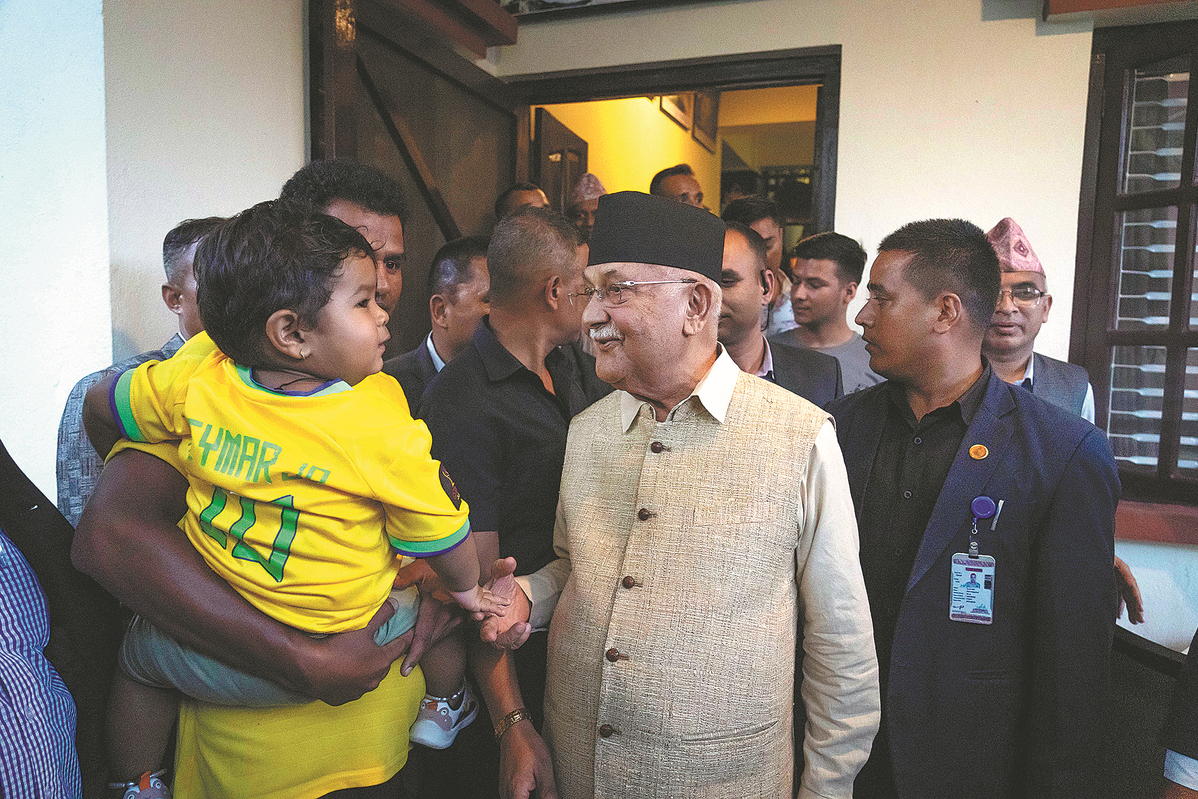
As KP Sharma Oli, chairman of the Communist Party of Nepal (Unified Marxist Leninist), or CPN-UML, was sworn in to head a new coalition government on Monday, experts said the incoming administration may offer the mountainous country the stability needed to boost development.
The nation's newly appointed prime minister also formed a 22-member cabinet. Nepali President Ram Chandra Paudel administered the oath of office to Oli, the two new deputy prime ministers and 19 ministers during a ceremony at the president's office in the capital of Kathmandu.
"The president has appointed CPN-UML chairperson Oli as the prime minister under Article 76 (2) of the Constitution," read a statement issued by the President's Office after he was appointed by Paudel on July 14, following the collapse of the previous coalition government.
Prakash Man Singh of the Nepali Congress and CPN-UML's Bishnu Prasad Paudel have been inducted as deputy prime ministers who will also head the Ministry of Urban Development and the Finance Ministry, respectively. Arzu Rana Deuba, wife of Sher Bahadur Deuba, Nepali Congress party President and former prime minister, becomes the foreign minister.
The 25-member cabinet is short of three state ministers. Several local media sources said Oli is expected to further expand the cabinet with members from the coalition's partner parties.
The CPN-UML joined hands with the main opposition Nepali Congress (NC) to command a majority in the lower house. The two parties are expected to rotate leadership until the next general election scheduled for 2027, according to The Kathmandu Post.
Oli becomes the head of a four-party coalition government under a deal reached with the Nepali Congress party on the night of July 1.
Prem Raj Joshi, chairman of the BP Koirala School of Public Policy, a leading think tank in Nepal, told China Daily that the country can expect a stable government, which can boost development.
Comfortable majority
Joshi said that is because the coalition is being formed by two big parties, which means they have a comfortable parliamentary majority.
According to Joshi, the major economic challenge facing this government is building the confidence of local businesses.
He said that trade has increased as a business sector in Nepal but manufacturing has not made significant progress over the years.
"For service industries like tourism, there needs to be proper infrastructure development for connectivity as well," Joshi said.
Oli has become prime minister for the fourth time in a decade. He was first appointed prime minister in October 2015 and served until August 2016. He returned to the office from February 2018 to May 2021 and again from May 2021 to July 2021.
Xinhua contributed to the story.





